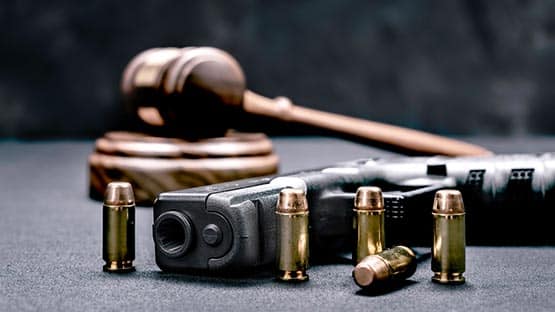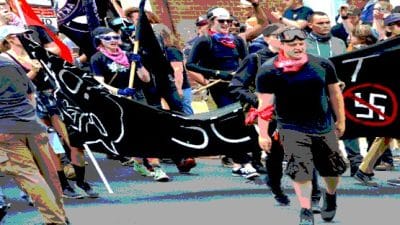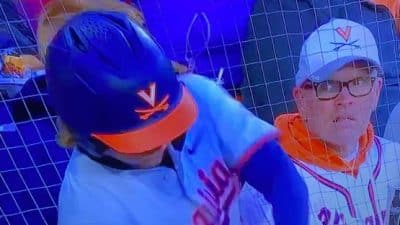The Top Story by Chris Graham
Waynesboro City Council member Frank Lucente feels that a May 1 News Virginian editorial that labeled him the “puppet master” pulling the strings of the May city elections and asserted that he had promised a political rival a seat on the governing body in two years if she backed out of her race with Ward D council representative Reo Hatfield defamed him.
He may have a hard time getting a jury to agree with him on that.
“It is rare for a public official to be able to prevail in such a suit – for the simple reason that there’s a pretty high threshold for them to prove harm to their good name, unless they can prove that the media organization did so with malice and reckless disregard for the truth. And that’s a pretty high threshold to prove in court,” Paul McMasters, the ombudsman at the Arlington-based First Amendment Center and one of the nation’s leading authorities on First Amendment issues, told The Augusta Free Press.
Lucente filed suit in Waynesboro Circuit Court last month against The News Virginian’s parent company, Media General, and the paper’s editorial board – claiming that the editorial piece in question, titled “Don’t let one man decide our election,” was libelous because “its clear implication and imputation was that the plaintiff was guilty of unethical conduct, was unfit to hold the office of City Councilman and had committed the crime of bribery.”
The suit also notes that the conversation repeated in the editorial never actually took place – as the paper itself conceded in an item published on its opinion page on May 3 in which it relayed that Hatfield’s opponent in the Ward D race, Lorie Smith, had told the NV’s editorial board in an April 18 interview that it was Hatfield who had asked her not to run and had pledged his support to have her appointed to fill out his term in the event that he would decide to step down.
Media General, in a demurrer motion filed on July 20, has asked for the suit to be dismissed – on the grounds that although the editorial “erroneously attributed a particular conversation” to Lucente, it still “conveyed a meaning not substantially different from the meaning that would have been conveyed had the error not occurred.”
“Put differently, the ‘jist’ or ‘sting’ of the editorial, as it related to Plaintiff, would have been the same had the error not occurred,” read the motion, which was filed by Richmond attorney Craig T. Merritt.
The deck is usually stacked in favor of media organizations in regard to libel cases involving public officials.
“Public officials and public figures have the same burden of proof – they are required to prove what the Supreme Court has called ‘actual malice’ in order to win any damages at all. And ‘actual malice’ is defined as either ‘knowledge of falsity’ or ‘reckless disregard for the truth,’ ” said Wat Hopkins, a communications professor at Virginia Tech and the author of a book reviewing the 1964 New York Times v. Sullivan case wherein the Supreme Court set the basic guidelines for future decisions on libel cases.
” ‘Reckless disregard’ is usually the route that plaintiffs take – because it can be proved based on the news-gathering process that the news organization used. However, it still has to be tantamount to lying – because the court has defined ‘reckless disregard’ as ‘purposeful avoidance of the truth,’ ” Hopkins said.
“You’ve got to prove one of those things. And it’s difficult to prove that someone lied. It’s equally difficult to prove that someone exercised reckless disregard,” Hopkins told the AFP.
Lucente and his Lexington-based attorney, W. Wayne Heslep, are bringing up both of those key legal points – Lucente’s suit alleges that because The News Virginian conducted the interview with Smith and possessed a tape recording and transcript of the interview that it “published the Article with actual malice, that is, with knowledge that it was false, or with reckless disregard of whether it was false or not.”
“The Defendants acted negligently in failing to check the facts on which the Article was based, facts that the Defendants had in their possession well before authoring and publishing the Article,” the suit states.
Lucente, who is seeking $650,000 in compensatory damages and $350,000 in punitive damages in his suit, declined an invitation from the AFP to offer comment for this story.
Bruce Potter, the publisher of The News Virginian – who is named in the suit along with Media General vice president George L. Mahoney, The News Virginian’s managing editor, J. Todd Foster, the paper’s circulation director, Randy Terwilliger, advertising director Matina Hancock and copy editor George Woods – also declined an invitation from the AFP to offer comment for this story.
It would seem that the burden of having to prove that what could appear to some to be a simple and honest mistake was instead something willful and malicious is an insurmountable hurdle for a plaintiff like Lucente – but the Supreme Court, in its 1980 ruling in Herbert v. Lando, did offer one carrot to plaintiffs in the form of the opportunity to put editors and publishers on the stand to testify to their state of mind in preparing a questionable news piece.
“Media lawyers and publishers and editors were very unhappy with that development – but it does represent a kind of a tradeoff,” said Bob O’Neil, a law professor at the University of Virginia and the executive director of the Thomas Jefferson Center for the Protection of Free Expression.
“If you put the two concepts together, the court says, well, on the one hand, you have a very high threshold of proof to sustain a claim of actual malice, but on the other hand, you can prove it, at least if you get across the threshold, and the case is not dismissed early on, you can put the editor or publisher on the stand – and probe that person’s state of mind under oath. So getting at the question – was there actual knowledge of falsehood, or was there what a jury might view as reckless disregard, you can essentially bring that out of the editor or publisher on the stand,” O’Neil told the AFP.
A question that could come up at that point in the proceedings of a libel case, said Roger Soenksen, a communications professor at James Madison University, involves the matter of whether or not there is “a consistent history in which the media organization has targeted the specific individual and published stories that are less than accurate.”
“What this says to the media is if you cover an individual and balance the story, you’re going to be in pretty good stead in terms of protecting yourself. But it also says that if you go after somebody time after time after time, and it looks like, from a historical point of view, that you’re targeting this individual, with little verification of valid information or valid sources, then that alone could end up constituting proof of that reckless-disregard-of-the-truth standard,” Soenksen told the AFP.
But that is well down the line of questions that will be asked with respect to this suit, according to Hopkins.
“The first question that you have to ask is – was this in fact defamatory? And I’m not sure that it was,” Hopkins said in reference to the Lucente case.
“And if it was defamatory, then the next question that you have to ask is, was it intentional, or was it an honest mistake? And then you have to determine that if it wasn’t intentional whether the misidentification was in fact reckless disregard – which is a pretty high burden of proof,” Hopkins said.
“That all said, it sounds like a pretty interesting case,” Hopkins said.
(Originally published 07-31-06)










